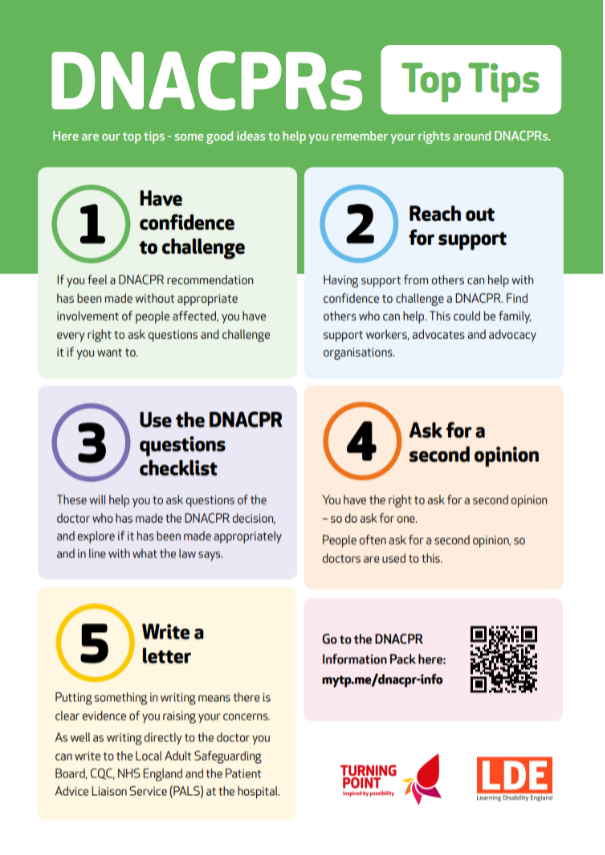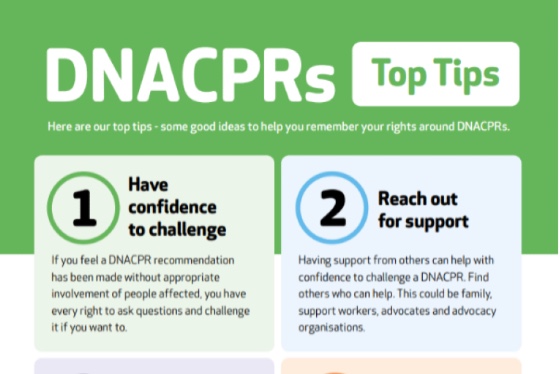Health and care provider Turning Point has teamed-up with Learning Disability England to produce an updated version of an information pack designed to guide and educate people on do not resuscitate decision making processes.
Turning Point says that during the pandemic it noticed an unprecedented increase in the number of people it supported that were subjected to a do not attempt cardiopulmonary resuscitation (DNACPR) recommendations that cited learning disability as the reason.
NHS guidelines state that learning disabilities should never be a reason for a recommendation not to attempt CPR.
Staff also noticed that many DNACPR decisions were made for people without consulting the person or those that know them best – their family or support workers.

At the time, Turning Point and Learning Disability England urgently mobilised to put together a guide to ensure that as many people as possible – whether that was self-advocates, family members or support workers – felt confident to challenge an inappropriate DNACPR.
The Care Quality Commission (CQC) review of DNACPRs during the pandemic found a general lack of awareness and confidence among people, families and care workers about what a DNACPR recommendation meant, and how to challenge this.
With inappropriate DNACPR recommendations still being made for people with learning disabilities, Turning Point and Learning Disability England decided to update the original guide, working with self-advocates, family members, support workers and experts to make sure the guide was accurate, accessible and engaging.
Expertise was also provided by academic specialists, the National Mental Capacity Forum, CQC and NHS England.
The updated resource includes information on:
- DNACPR recommendations – when DNACPR might be the right recommendation and what should happen when a DNACPR recommendation is made.
- DNACPR and the law.
- The DNACPR Checklist – what the doctor should tell a person about a DNACPR recommendation, and what a person should tell a doctor if they have been thinking about DNACPR.
- Useful resources including examples of DNACPR forms and a letter template that can be used if someone wants to raise a concern about a DNACPR recommendation.
- Where to get help or find out more about DNACPR on other websites.
The most recent LeDeR report found that where a DNACPR was in place at the time of death, DNACPR documentation and processes were not correctly completed and followed in over one third of cases.
One of Turning Point’s core aims is to reduce health inequalities. This includes unequal access to healthcare which may be borne of stigma or prejudice or lack of knowledge.
The organisation utilised the knowledge and skills of the people it supports to create the DNACPR information pack which includes video clips of people who have successfully challenged inappropriate DNACPRs and a poster with some ‘Top Tips’ on DNACPR from people with lived experience that can be printed out. The information pack takes the form of an interactive online resource but there is also the option to download a pdf version for those who prefer.
Turning Point chief executive Julie Bass said: “People with learning disabilities or autism have the same rights as anyone else to be fully involved in decisions about their own lives, including in matters of life and death.
“We are proud to have worked alongside Learning Disability England to create this vital information pack that give self-advocates and families access to the relevant information to make an informed decision on DNACPRs.”







